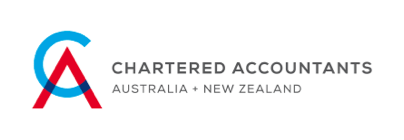For many Australian industries, trust accounts are a legal requirement and play an important role in safeguarding client funds. But with that responsibility comes strict compliance obligations — and regular trust account audits.
To unpack what this means in practice, we sat down with Katrina McPhee, Partner at Allen Audit & Advisory, to discuss trust account audits in detail: who needs them, what auditors look for, and how to stay compliant.
Which industries require trust account audits?
“There are a lot of industries that require trust audits. Most of the time, if you have a trust account, you’re required to have an audit,” says Katrina.
“Client funds can be held in one trust account owned by you, and then you require different ledgers that are owned by each individual fund owner.
“We specialise in Queensland and New South Wales real estate businesses, and Queensland accountants, funeral homes and law firms.”
What triggers a trust account audit?
“All types of entities are required by their legislative body to have an audit every year,” says Katrina.
“Queensland real estate businesses are required to have three audits per year, funeral homes have two, and other industries generally need one audit per year.”
What are auditors looking for when auditing a trust account?
“What we’re looking for in a trust account audit depends on the legislation you’re abiding by,” says Katrina.
“Each legislation has a list and set of rules that the trust account holder must follow to correctly operate a trust account; we’re making sure you are compliant and abiding by that legislative list.
“That can include rules around deposit requirements, record keeping, and disbursements.”
What happens if something is wrong?
“If something goes wrong, the first thing you should do is reach out to your auditor and let them know what’s happened, so we can find a way to rectify it,” says Katrina.
“Rectifying as quickly as possible is the best way forward. Fixing it in a timely manner is what your reporting body will be looking to see.”
What happens if funds are commingled?
“If you mix your trust account funds with your general account, it will cause a breach — you can’t mix your funds,” explains Katrina.
“Your trust account must hold only client funds that don’t belong to you, and then you have your general account or business account, they must always stay separate.
“If you do accidentally mix them for any purpose, get in touch with your auditor and find a way to correct it as quickly as possible.
“In some instances, you also need to report it to the regulatory body as soon as possible, before moving forward.”
What if a client is overpaid or forgets about the balance?
“If you overpay, for instance, and put your trust account into a negative balance, that is a breach in all legislations,” warns Katrina.
“Get in touch with your auditor, correct it as quickly as possible, and document everything to make sure you have all the evidence to support what’s happened and why.
“If a balance has been forgotten about, it really depends on the circumstance and would be best addressed with your auditor.
“If you do have any questions throughout the year, you can always pick up the phone, send us an email or pop in and we can go through the issue in detail.”
Should trust account holders try and fix an issue themselves?
“If you’ve made an error, it is advised to correct it as quickly as possible,” advises Katrina.
“Maintain a clear paper trail, document the exact process you took, and be as transparent and honest as you possibly can.
“Mistakes do happen. They’re unavoidable. If you own a trust account, chances are you’ll make an error at some point.
“But if you’ve tried to correct it, and have all your documentation in place, normally the legislative body will respect that and work with you to form a solution.”
Are internal reviews or spot checks worth it?
“If you’ve got a strict set of rules to abide by, making sure you’re abiding by those rules as often as possible is only going to be advantageous,” encourages Katrina.
“Reconciling, having someone double check your work, reviewing the legislation, or even looking over auditor’s notes from the year prior, are all great steps to help keep your trust account compliant.”
Why choose Allen Audit & Advisory as my trust account auditor?
“We have extensive experience in trust account auditing and have built deep relationships with the different legislative bodies that we work with,” says Katrina.
“We stay up to date with all the latest information and legislative changes, and we keep in touch with each legislative body to better understand all the legislation areas so we can give our clients the best possible information.”
As well as being a regulatory requirement, trust account audits can be an opportunity to strengthen systems, protect client funds, and build credibility. With the right preparation, errors can be managed, and compliance doesn’t have to be stressful.
If you operate a trust account in real estate, accounting, funeral services or law, Allen Audit & Advisory has the expertise and experience to guide you through the process with confidence.








